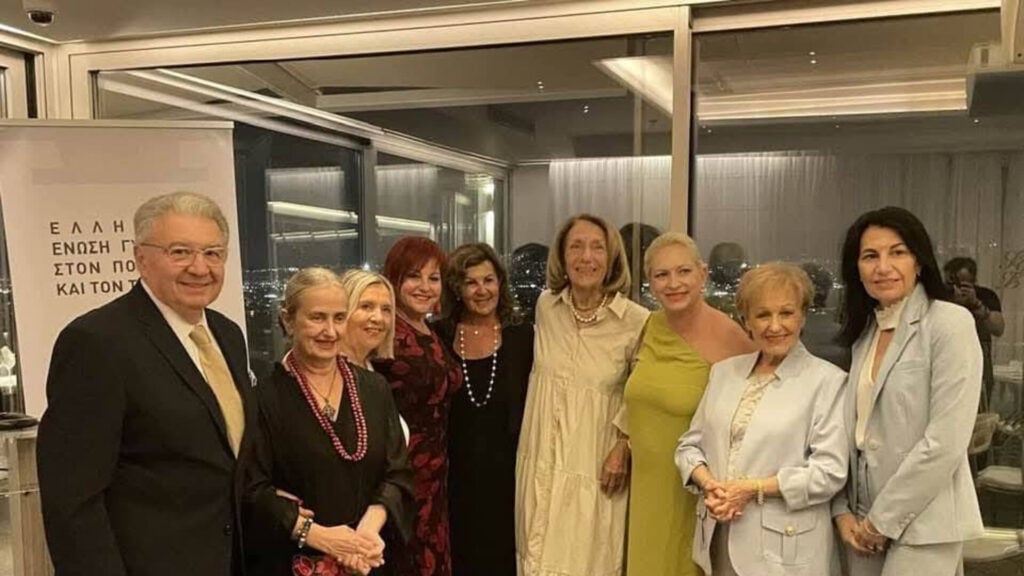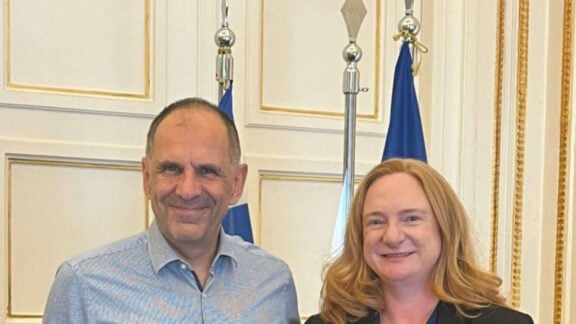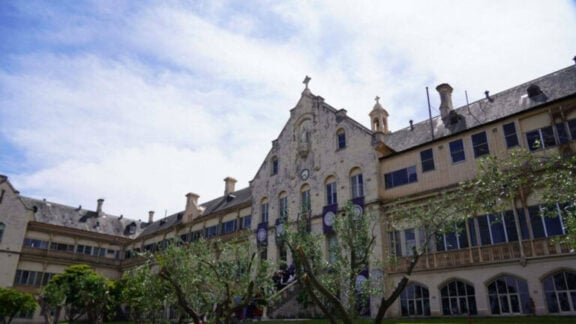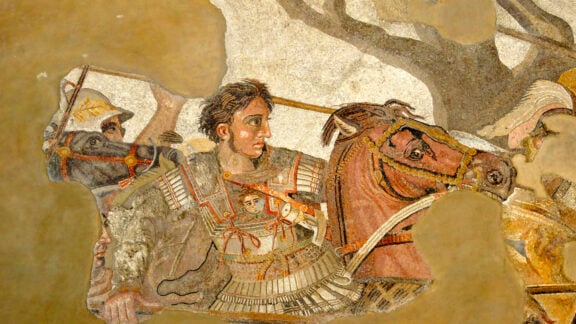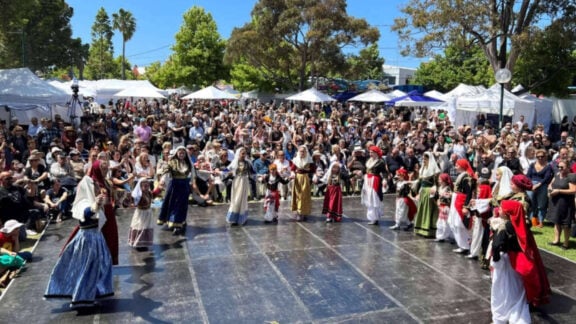From Sappho and Hypatia of Alexandria in Hellenic antiquity, through Empress Theodora in the Byzantine era, to Laskarina Bouboulina in the Greek struggle for independence, and on to firebrand actor-politician Melina Mercouri and Gianna Angelopoulos-Daskalaki today — Greek women, whether residents of Greece or members of the diaspora, and regardless of, or perhaps despite, Greek patriarchy, have embodied power, resilience, leadership, and courage for millennia.
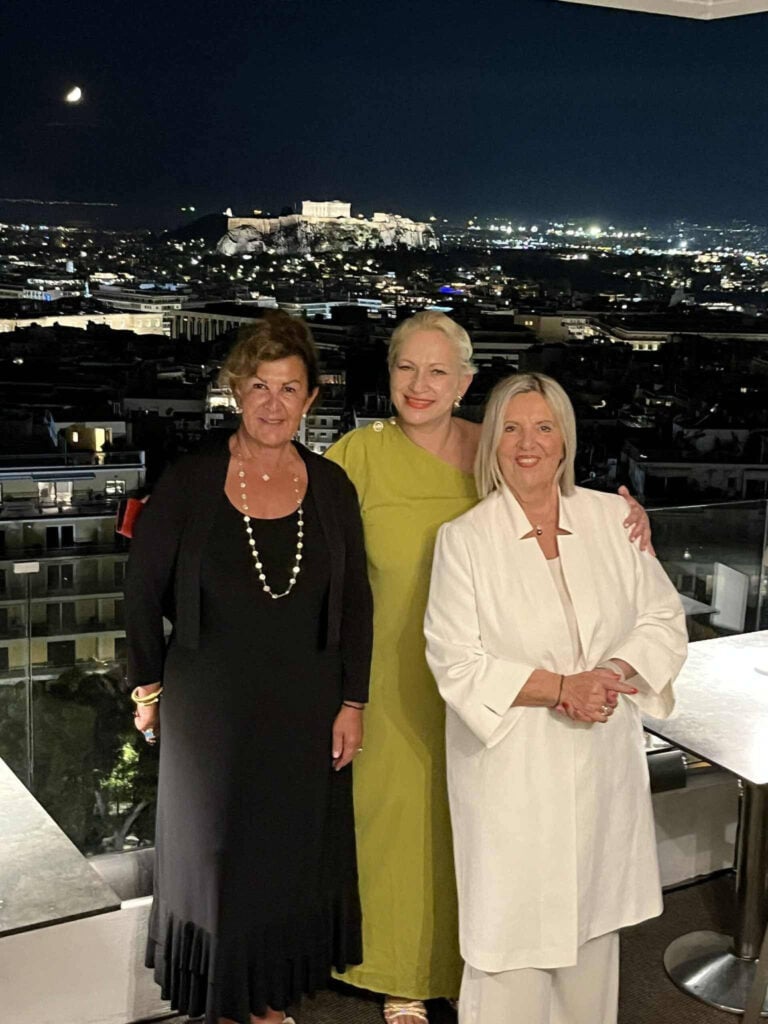
Last week in Athens, three powerful Hellenic women’s associations came together at “The Voice of Women of Hellenism” — the first-ever joint assembly of its kind. The Hellenic Association of Women in Culture and Tourism (HAWCT Greece), the Hellenic American Women’s Council (HAWC USA), and Australia’s Food For Thought Network (FFTN) gathered at the historic St George Lycabettus Lifestyle Hotel, with the Acropolis as their backdrop. The temple to Athena, the city’s deity and the virgin warrior goddess of wisdom, stood as a symbolic guardian over the assembly.
United in purpose, the gathering declared a shared vision: “The return of the Parthenon Sculptures to their rightful home” — back to Athena.
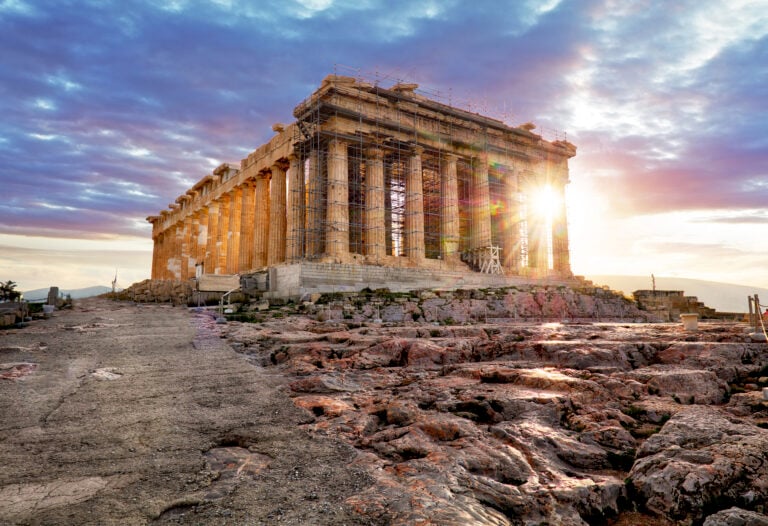
The presidents of the three associations — Chrysa Voulgaridou (HAWCT), Eri Pasalidis (HAWC), and Barbara Athanasiou Ioannou (FFTN) — expressed a firm commitment to joint initiatives. Voulgaridou emphasised the deep significance of the gathering’s time and place.
“Voices from Greece and the diaspora united with a shared vision: to honour our culture, empower women, and claim justice,” she said.
A memorandum of cooperation between the three organisations will now extend their work beyond cultural heritage to include combating violence against women, advancing gender equality, and developing international mentoring programs. “Every step we take is not just an event, it is a promise: to continue until the Sculptures return to their rightful home, the Parthenon. Strength lies in unity,” Voulgaridou said.
Pasalidis described the Sculptures as a “tangible and intangible connection to our ancestors, history and culture” and denounced their removal by Lord Elgin in the early 19th century as “cultural plunder.” She stressed that their return is both a matter of justice and respect for world heritage.
Barbara Athanasiou Ioannou highlighted the importance of this new alliance. “The diaspora plays a vital role through campaigns for our heritage abroad. Our voice will not be silenced, our presence will not be ignored, and our commitment to a fair and equal society will never cease.”
“Every step we take is not just an event, it is a promise: to continue until the Sculptures return to their rightful home, the Parthenon. Strength lies in unity,” Chrysa Voulgaridou, President of the Hellenic Association of Women in Culture and Tourism
The event included addresses by Olympia Anastasopoulou, Special Secretary for Alternative Dispute Resolution at the Ministry of Justice, who proposed a reunification framework based on ADR methodology; Eirini Vassilopoulou, owner of St George Lycabettus, who described culture as “a bridge between peoples”; and Professor John Chrysoulakis, former Secretary General for Greeks Abroad and Public Diplomacy, who reaffirmed his support. Lila de Chaves, President of the Hellenic Federation of Friends of Museums, declared the Sculptures “the soul of Greece… they belong here, in our home.”
Other notable attendees included Anastassios Varelas, Secretary General of the National Council of UNESCO Clubs and Centres, as well as members of the Greek Women’s Union and GIWA. Presentations included “The Parthenon and the Return of the Sculptures — a Demand for Justice and Culture” by Dr Mary Marouli Zilemonou, and “The Reception of Greek Antiquity and the Diaspora” by historian Sissy Papathanasiou.
The evening concluded with moving recitations of poetry by Kostis Palamas, Lord Byron, and Ioannis Polemis, curated by Eugenia Arseni, turning poetry into a universal voice of justice.
The event was hailed as a historic first step in a united international effort, laying the foundation for stronger future work on equality, heritage preservation, and advocacy for Greek and all women worldwide. Hellenism and justice here has its most natural leaders, Greek women.
